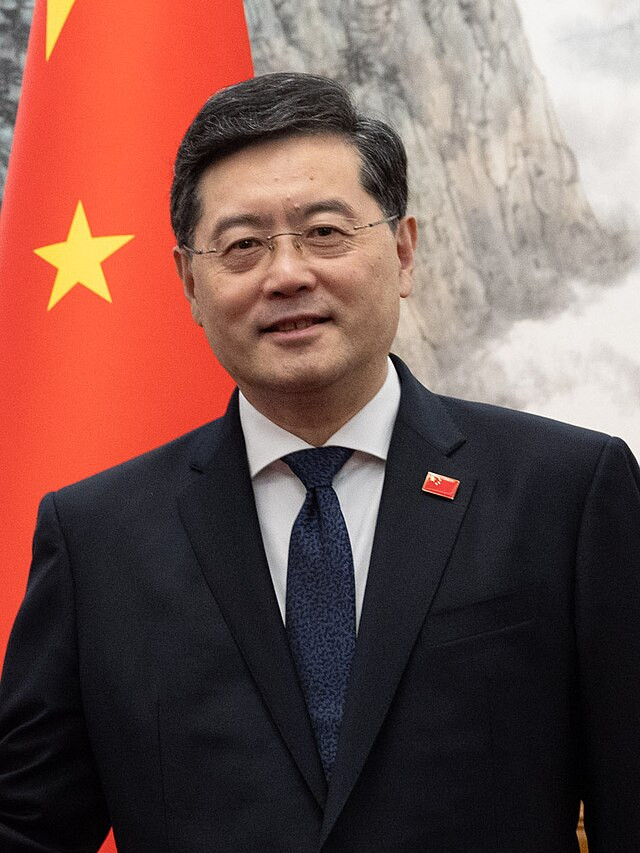In a significant shake-up within China's political hierarchy, the Communist Party has removed its former foreign minister, Qin Gang, and former defense minister, Li Shangfu, from the party's Central Committee. This move, announced on Thursday, underscores President Xi Jinping's ongoing anti-corruption campaign, which continues to reverberate through the upper echelons of Chinese leadership.
Qin Gang, who had mysteriously disappeared from the public eye last summer, has officially resigned from his position on the Central Committee. The resignation was accepted during a four-day session of the party's top decision-making body. No detailed explanation was provided regarding the circumstances leading to his resignation, fueling speculation about the internal dynamics at play.
Qin's absence from official duties last summer, followed by his abrupt removal from the post of foreign minister after only seven months, had already raised eyebrows. His resignation from the National People's Congress in February further deepened the intrigue surrounding his sudden fall from grace. Qin's meteoric rise to one of China's youngest foreign ministers in December 2022 was seen by many as a testament to his close ties with President Xi Jinping.
Despite the lack of an official reason for Qin's resignation, some analysts believe it was orchestrated to maintain a semblance of dignity. "Qin Gang is able to get a relatively more graceful exit. The communique grants him the dignity of appearing to 'resign' on his own volition, and still calls him a 'comrade,'" remarked Wen-Ti Sung, a fellow at the Atlantic Council's Global China Hub.
In a parallel development, Li Shangfu, who had also disappeared from public view last summer, has been expelled from the Communist Party altogether. Li's downfall was linked to serious corruption allegations, as confirmed by the Central Committee. He was removed from his position as defense minister last October and subsequently placed under investigation for graft. Li's expulsion from the party, along with his predecessor Wei Fenghe and former PLA Rocket Force commander Li Yuchao, highlights the extensive scope of the anti-corruption purge within the Chinese military.
The Central Committee's communique indicated that Li Shangfu and Li Yuchao were ousted for "serious violations of discipline and law," a common euphemism for corruption. The removal of these high-ranking officials underscores the continued intensity of Xi Jinping's anti-corruption drive, which has targeted numerous officials since its inception in 2012.
"One could see the dismissals as a sign of the continued vigor of Xi's anti-corruption campaign - or its sub-optimal effectiveness at preventing corruption even after more than a decade," Sung observed.
The party's commitment to maintaining its grip on the military was also emphasized in the communique, which pledged to deepen military reforms and uphold the party's leadership over the People's Liberation Army (PLA). This commitment comes amid a broader context of military and defense modernization efforts, which are crucial for China's strategic ambitions.
The removal of Qin Gang and Li Shangfu, alongside the expulsion of other key figures, indicates a rigorous effort to clean house and address corruption at the highest levels. However, the implications of these moves for China's internal politics and its international relations remain to be seen.
The recent Central Committee session also saw the appointment of three alternate members to full membership status: Ding Xiangqun, Yu Lijun, and Yu Jihong. These appointments are part of the party's strategy to fill vacancies and ensure continuity in governance.






